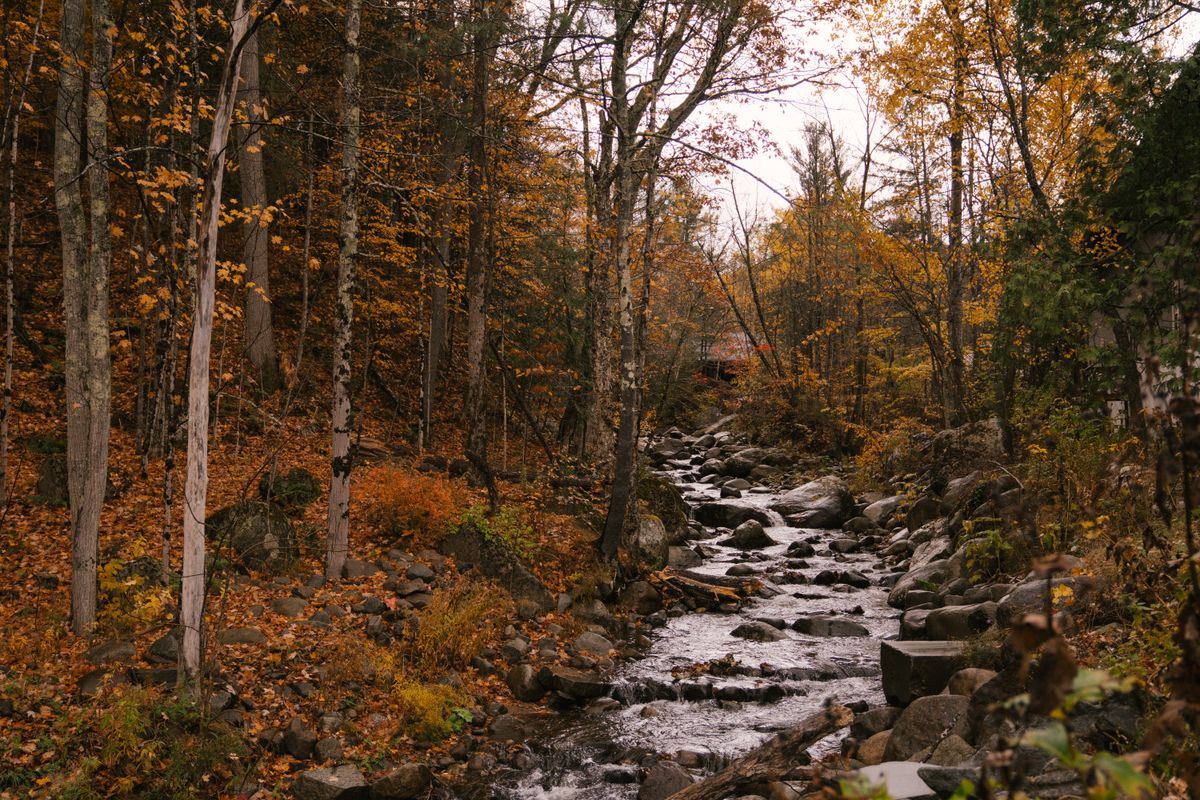Private water companies look for a municipal plan
They're hoping for an engineering assessment of potential and existing water systems in Thetford's villages.

On Thursday October 7th a meeting of the Town Manager and representatives from private water companies in Thetford made the decision to convene a working committee. The working committee will form a dedicated grant committee tasked with applying for a Municipal Planning Grant, a program administered by the Vermont Department of Housing and Community Development and available to municipalities. If awarded, the grant would fund an engineering assessment of potential water supplies and existing water systems in Thetford’s villages. The Town would be responsible for 10% of costs as required by the grant program.
Across Vermont, about 30% of households get their domestic water from private wells. And in Thetford, a largely rural community, private wells supply the majority of homes. However there are situations where private wells are not used for a variety of reasons. The house lots may be too small to allow each to have its own well. Numerous wells tapping into the same underground water source would soon deplete it. In other situations the quality of the groundwater is poor; for instance it may contain high levels of iron or sulphur. Ingesting too much iron can be harmful to health, while water containing sulphur also tastes bad. Around the former Post Mills Landfill, private wells were polluted by a host of noxious chemicals leaching from that landfill, which is unlined, including the “forever chemical” PFAS (see Sidenote articles Part 1 and Part 2).
The solution has been to tap into a water source that is clean and reliable and send it via pipes, and sometimes pumps, to the affected homes. In many cases the water source is at quite a distance. Small private water companies or cooperatives own the water systems and levy a fee from the users to manage and maintain them. This makes them into public water systems if the following definition applies:
Vermont’ Department of Environmental Conservation’s (DEC) Water Supply Rule states: "Public Community Water System means a public water system which serves at least fifteen (15) service connections used by year-round residents or regularly serves at least 25 year-round residents.”
“Public” is where the State of Vermont makes things more complicated. While private wells are not regulated by the EPA or the state, public water supplies are regulated by the DEC and must comply with EPA or greater standards including monitoring the quality and safety of their water through testing performed and certified by the Health Department's Laboratory.
DEC’s Water Supply Rule states: “Public water systems ... shall comply with the maximum contaminant levels (MCLs), maximum residual disinfectant levels (MRDLs), monitoring requirements, routine sampling and repeat sampling requirements, treatment techniques, reporting requirements and public notification requirements for microbiological, inorganic chemical, organic chemical, radiological, and disinfection byproduct contaminants established in this subchapter, Subchapter 21-11, and in 40 CFR, Parts 141 and 143.”
This is to ensure the water meets public drinking water standards. Under the Water Supply Rule the state also requires new or expanding public water systems to have their design specifications approved by the DEC.
Some public water supplies, like the one that serves Thetford Hill Village, have incorporated the rules and are running without major problems. Others are not as fortunate. The East Thetford Water Company came into existence in 1961 with a system of pipes that delivered water from the Wheeler spring on Thetford Hill to homes in East Thetford. By a series of misfortunes that started with the contamination of the spring by road salt, they have been forced to twice relocate their water source and now carry a very substantial debt for engineering and design services, a new, deep drilled well and well pump system. As a result their water fees have increased to $800/year per household. This may be unsustainable as some residents have drilled private wells and withdrawn from the water company rather than continuing to pay fees. This increases the cost burden for the remaining users.
In North Thetford Village there are three water companies. Two of these remain under the minimum number of service connections that define a Public Water System and thus are not subject to the expense of testing and other oversight that would drive up user fees.
Vermont State planners, working through Regional Planning Commissions, recommend that new development be concentrated in existing centers, like built-up towns and villages, rather than creating rural sprawl. Meanwhile the Northeast region is suffering an acute housing shortage that is limiting economic growth and driving up house prices. But to create new housing in Thetford's villages, property owners must be willing to subdivide their lots, if that is even practicable, or build Accessory Dwelling Units (often referred to as “mother-in-law apartments”) onto an existing structure. Either way, this would create more demand for clean, safe domestic water.
That’s the impetus behind the move to get a Municipal Planning Grant that will hopefully clarify the water options in the villages and thus the potential for more housing. Even so, denser settlement may not be appropriate in all villages. For instance, the location of North Thetford village in a FEMA Flood Hazard Zone puts stringent limitations on new development.
If there are viable areas for the development of municipal water systems, Fire Districts may be one way to manage them. "Their purpose is to manage certain functions of town government that either are not available throughout the entire town, or are better administered by a distinct, special-purpose entity. Fire districts have been formed to manage community sewer systems, sidewalks, street lighting, fire departments, and water systems.”
A fire district is a municipal corporation just like the Town. It has its own democratically elected board, and has the power to collect fees and levy tax liens for non-payment of water rates.
A fire district has all the rights and responsibilities of a municipality, including following open meeting and record retention laws, taxing and taking decisions, and passing bonds for infrastructure improvements.
A fire district would be similar in function to a private water company; however the district becomes eligible for various state and federal funding programs and municipal financing rates and terms that are not available to privately owned water systems. There’s another difference: property owners within the district could not simply drill their own well to avoid district fees and tax levies.
